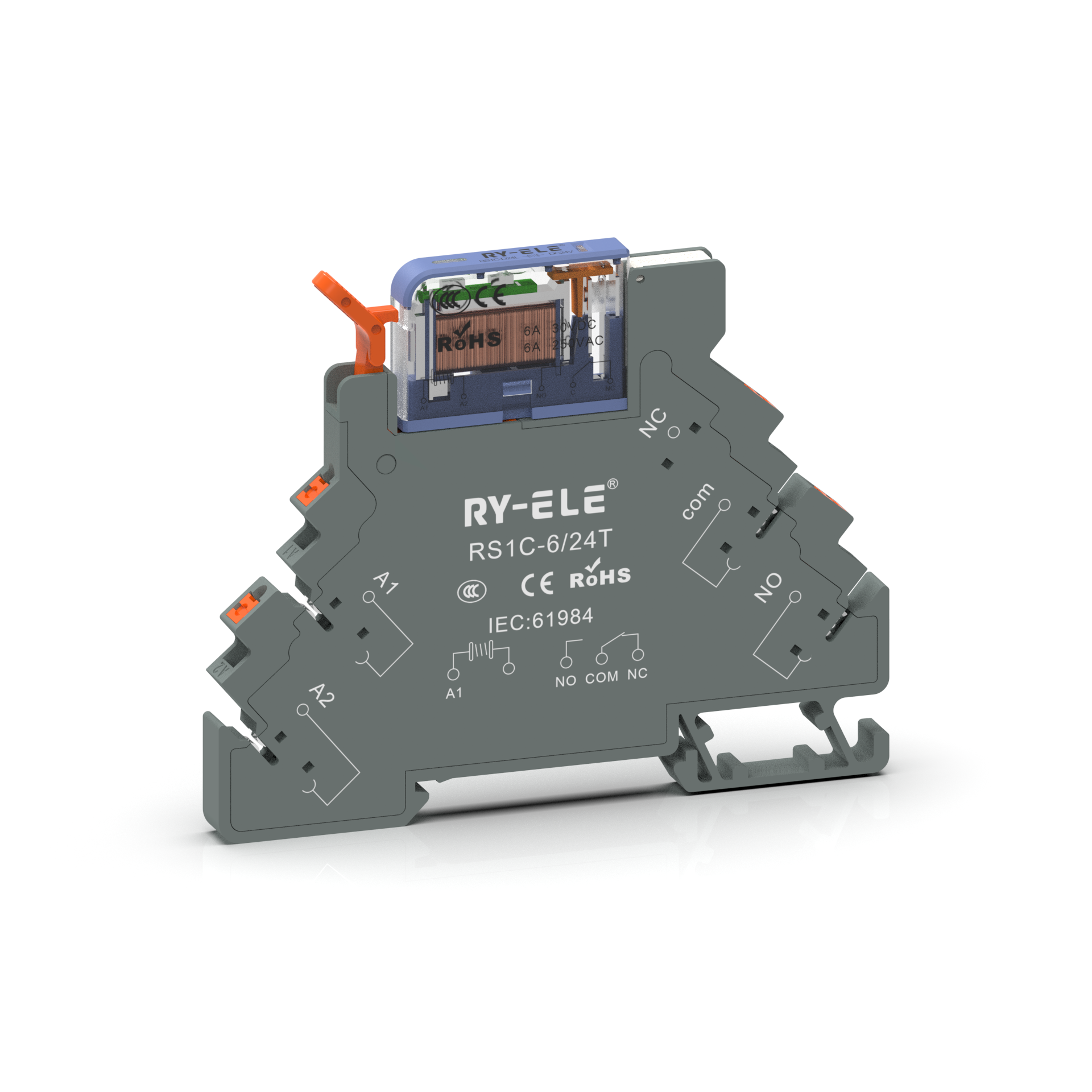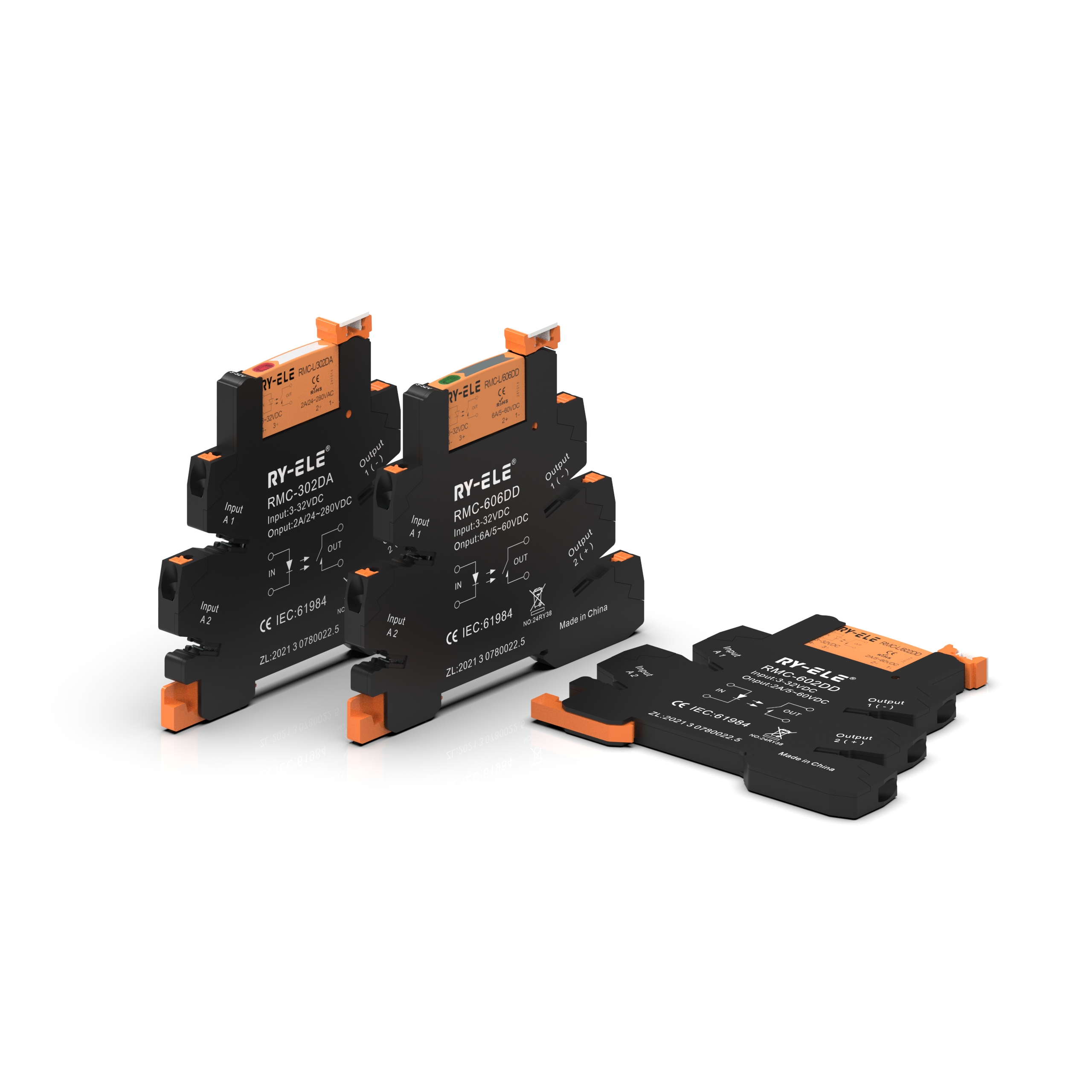Solid-State Relays vs. Electromagnetic Relays: Which One Fits Your Industrial Equipment Better?
Introduction
What is an Electromagnetic Relay (EMR)?
An electromagnetic relay is a traditional switching device that uses a coil and mechanical contacts to open or close circuits.
Advantages:
Cost-effective and widely available
Can handle both AC and DC loads
Provides clear physical isolation between control and load circuits
Limitations:
Mechanical wear reduces lifespan
Slower switching speed
Audible noise during operation

What is a Solid-State Relay (SSR)?
A solid-state relay uses semiconductor components (such as thyristors or triacs) to perform switching without moving parts.
Advantages:
Long lifespan due to no mechanical wear
High-speed switching
Silent operation
Better performance in high-vibration environments
Limitations:
Higher initial cost
Generates heat, requiring proper cooling
Limited overload capacity compared to EMRs

Key Differences: SSR vs. EMR
Lifespan: SSRs last significantly longer due to non-mechanical design.
Switching Speed: SSRs switch in milliseconds, ideal for high-frequency applications.
Noise Level: SSRs are completely silent, while EMRs produce audible clicks.
Load Capacity: EMRs handle overloads better; SSRs require precise load management.
Cost: EMRs are budget-friendly; SSRs require higher upfront investment but offer long-term value.
Applications of SSRs and EMRs
Solid-State Relays (SSRs):
Industrial heating systems
High-speed packaging machinery
CNC machines
Robotics and semiconductor manufacturing
Electromagnetic Relays (EMRs):
Motor control and starting circuits
General-purpose switching
Power distribution systems
Applications with infrequent switching
RY-ELE Solutions: SSRs & EMRs
At RY-ELE, we provide both SSR and EMR solutions to meet diverse customer needs:
RMG1S Solid-State Relay: Handles up to 120A, suitable for industrial heating and heavy-duty loads.
RXS2C Electromagnetic Relay: Compact design, rated up to 10A, ideal for control cabinets and automation panels.
Certified Quality: CE, RoHS compliance for global markets.
One-Stop Supply: Relay sockets, terminal blocks, and modules for easy integration.
How to Choose Between SSR and EMR?
High-Frequency Switching → Choose SSRs
Motor Control or Overload-Prone Systems → Choose EMRs
Noise-Sensitive Environments → Choose SSRs
Budget-Constrained Projects → Choose EMRs
Conclusion
Both solid-state and electromagnetic relays play essential roles in industrial equipment. SSRs excel in speed, lifespan, and noise-free operation, while EMRs remain cost-effective and versatile for general applications. With RY-ELE’s wide product portfolio, you can confidently select the right relay type for your system—balancing performance, cost, and reliability.
Discover more about SSRs and EMRs on the RY-ELE Official Website.
Learn more:🔘 RY-ELE SA Series Push Button Switches
Learn more:Slim Relay Beginner’s Guide|How to Choose When Your Control Cabinet Space is Limited?







